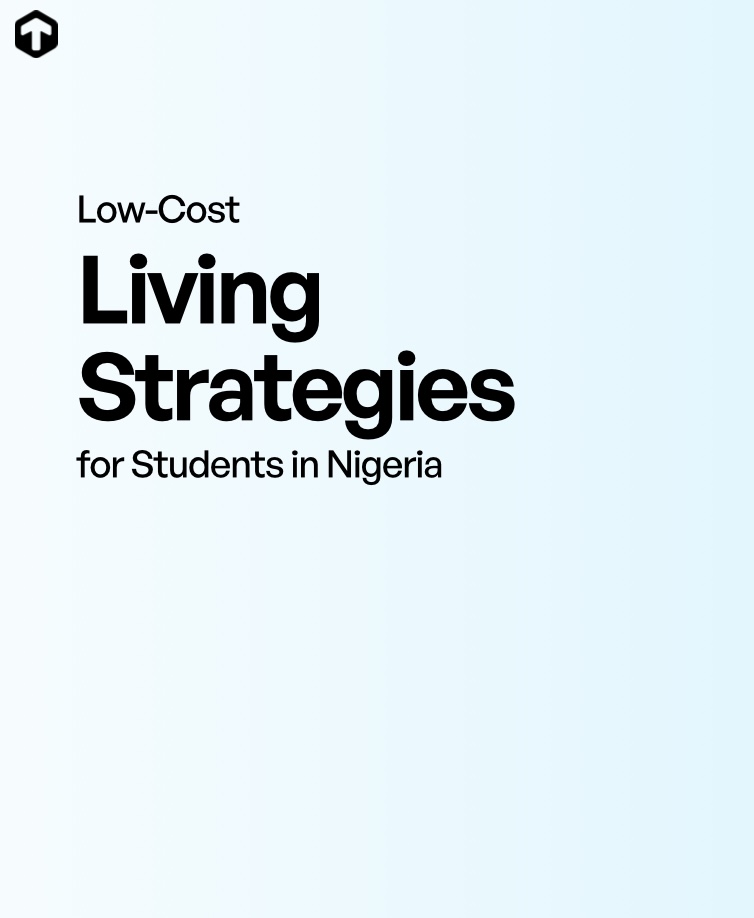The truth is, life as a student in Nigeria is no picnic, especially when the cost of living seems to be skyrocketing every day. With inflationary food prices, unpredictable transportation costs, and the constant need to pay for school essentials, it’s easy to feel overwhelmed.
But don’t worry I’m here to help you navigate these challenges and show you practical ways to stretch your naira without sacrificing your quality of life. By the time you finish this guide, you’ll have actionable, real-world strategies to make your life easier, more affordable, and, dare I say, even enjoyable as a student in Nigeria.
How to Manage your Finances as a Nigerian Student
1. Master Your Food Budget
Food is a major expense for students, and with prices for staples like bread, eggs, and noodles doubling over the past two years, meal planning has never been more crucial. Here’s how to stay ahead:
- Buy in bulk: Markets like Mile 12, or Ketu in Lagos offer lower prices for bulk purchases. Stock up on staples like rice, beans, and garri to save money.
- Cook at home: Dining out regularly is a luxury most students can’t afford. Simple, nutritious meals like yam porridge or beans and plantain cost far less than takeout.
- Meal prep: Preparing your meals for the week can prevent impulsive (and costly) food buys. Invest in reusable containers to portion out meals.
By being intentional with your food choices and avoiding unnecessary splurges, you can keep this essential expense well under control.
2. Cut Down on Transportation Costs
Transportation is another thing that can quickly add up. So, to save money, consider using public transport like buses and tricycles (keke napep), which are often the most affordable options. Walking or cycling to nearby destinations is another great way to cut expenses while staying active.
These small changes can make a big difference in lowering your monthly transportation expenses without compromising your mobility.
3. Affordable Housing Solutions
Accommodation often takes up a significant portion of your budget, but there are ways to minimize costs. Sharing a place with a roommate can help split expenses like rent, utilities, and maintenance.
Choosing campus hostels, while not always luxurious, is usually far more affordable than private housing. Negotiating with landlords can also be effective, as many are open to offering discounts for upfront payments or long-term agreements.
Additionally, if your university is in a high-cost city like Lagos or Abuja, consider finding housing in less expensive suburbs nearby. Exploring these options can help you secure a living arrangement that suits your budget without compromising your education.
4. Managing Educational Expenses
The cost of tuition, books, and other learning materials can quickly spiral out of control, but there are ways to manage it effectively. Start by leveraging scholarships, as many organizations and state governments offer them to Nigerian students—apply for as many as you can to ease your financial burden.
Consider using digital resources, such as free e-books or renting books from school libraries, to save on textbook costs. Buying used materials is another smart option; student forums and websites often have second-hand textbooks and supplies available at much lower prices.
You can also focus on studying smarter by taking advantage of free online courses to enhance your education and avoid the expense of private lessons. The key is to be resourceful and seize every opportunity for academic savings.
5. Smart Utility Management
Utilities such as electricity, water, and internet are non-negotiable, but they can still be optimized to save costs. Using energy-efficient appliances, like LED bulbs, can significantly reduce your power bill. Bundling services, such as combining internet, can also lower your monthly rates.
Also, regularly tracking your electricity usage and ensuring lights and appliances are turned off when not in use helps cut unnecessary expenses. Reducing utility costs frees up more money for other essential needs.
6. Budget-Friendly Entertainment
You don’t have to give up fun just because you’re saving. Many cities host free or affordable events like concerts, art exhibitions, or cultural festivals, so keep an eye out for these on campus notice boards or social media.
You can also share streaming service subscriptions with friends to split the cost for platforms such as Netflix or Spotify. Joining student groups can be another great way to enjoy affordable trips and outings, as campus clubs and societies often organize these activities.
Having a good time doesn’t have to break the bank if you’re strategic about it.
7. Financial Discipline: The Golden Rule
The best-laid plans won’t work if you don’t stick to a budget. Being financially disciplined ensures long-term success, even beyond your student years.
Here’s how to stay disciplined:
- Track expenses: Use apps like Wallet or Goodbudget to monitor your spending habits.
- Set priorities: Focus on needs (food, rent, tuition) before wants (luxuries or non-essentials).
- Save consistently: Even setting aside N1,000 per month adds up over time.

Read Also: Types of Budget
Conclusion
Living on a budget as a student in Nigeria isn’t easy, but with the right strategies, it’s entirely possible. By focusing on essential expenses like food, housing, and transportation, while trimming non-essentials, you’ll not only survive but thrive in this challenging economy.
Remember, every little saving adds up, and the habits you form now will set you up for financial independence in the future.





